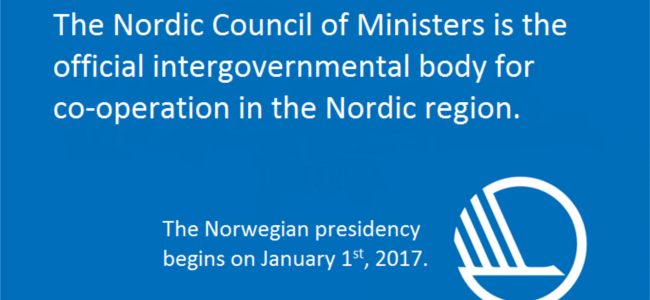The programme – which forms the basis for Nordic intergovernmental cooperation in 2017 – has three main themes:
1.The Nordic region in transition We will promote Nordic competitiveness, transition to a green, low-carbon economy, integration, and cooperation in the field of health.
2.The Nordic region in Europe We will work to boost our cooperation on European policy. A strong Nordic voice in the European debate benefits Europe as well as the Nordic region.
3.The Nordic region in the world We will further develop the Nordic strategic partnership in foreign policy.
Norway is also interested in pursuing synergies between the Nordic and the Nordic–Baltic cooperation.
•Presidency Programme for the Nordic Council of Ministers 2017 (pdf)
Minister for Nordic Cooperation and Norwegian Minister of EEA and EU Affairs Elisabeth Vik Aspaker was also in attendance at the presentation of the Norwegian presidency programme. As Minister for Nordic Cooperation, Ms Aspaker will be responsible for coordinating the Norwegian presidency.
‘I’m looking forward to getting started on the Norwegian presidency in 2017. The Nordic region needs a strong Europe, and a Europe at a crossroads such as this needs a strong and visible Nordic region,” Ms Aspaker said.
Background
The Nordic Council of Ministers is the official body for Nordic intergovernmental cooperation. The presidency is held for a year at a time, and rotates between the five Nordic countries. The country holding the presidency develops a programme to guide Nordic cooperation during that year.
Finland holds the presidency in 2016, and it will be passed to Norway on 1 January 2017. There is also informal cooperation between the Nordic countries beyond the framework of the Nordic Council of Ministers, for example in foreign affairs and security policy, and this cooperation is also led by the country holding the presidency.
The Nordic Council is the official inter-parliamentary body in the Nordic Region.
